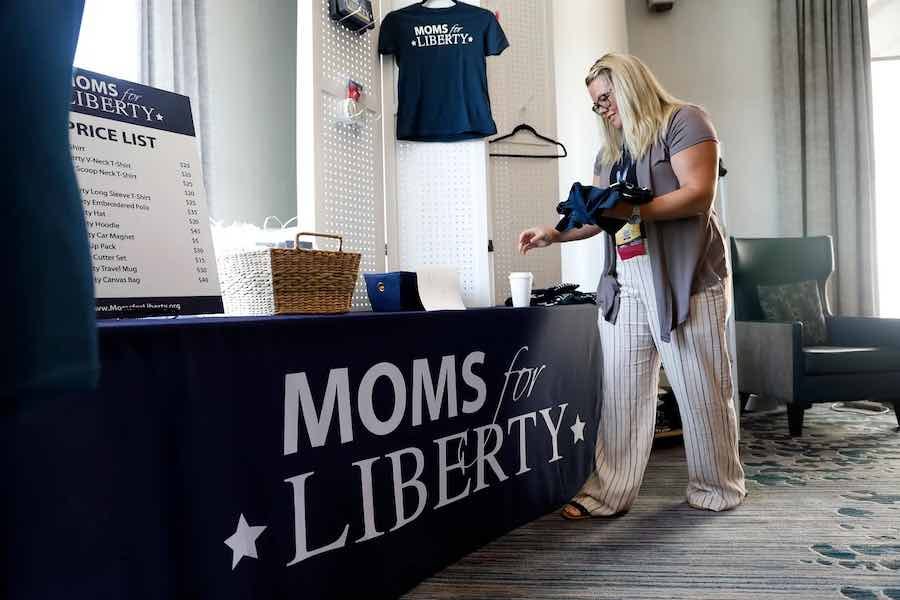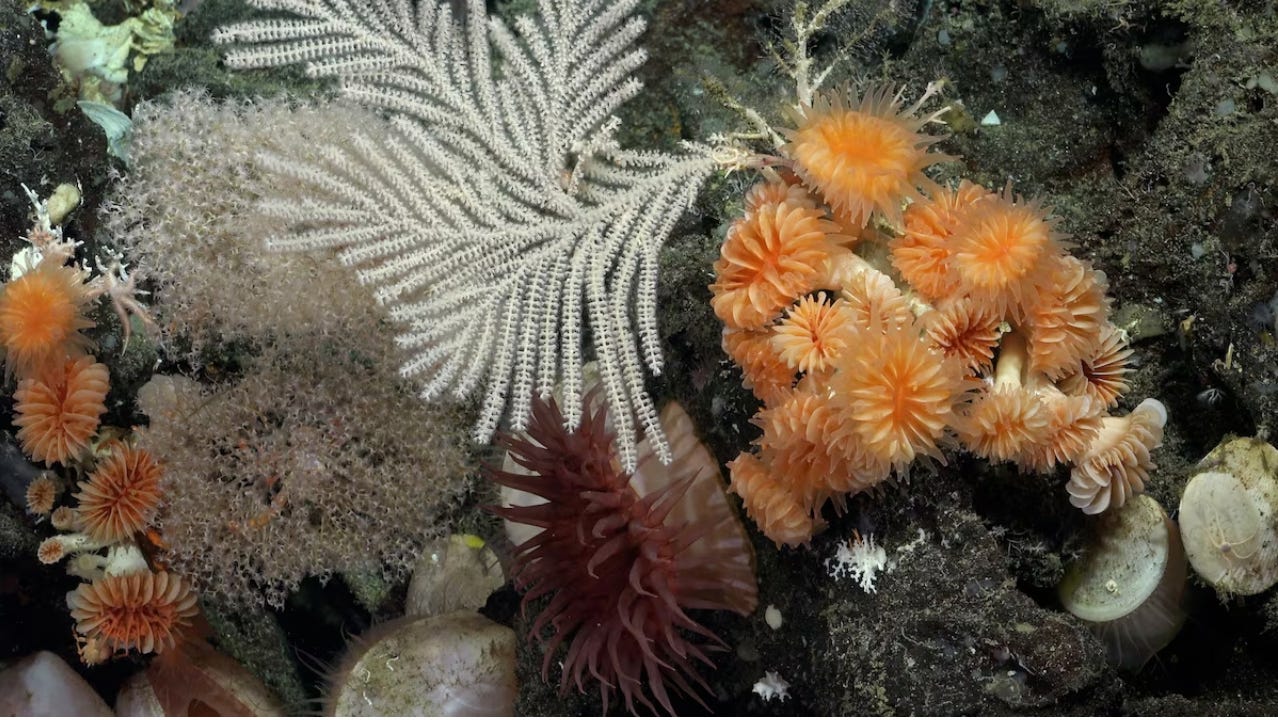The Weird Times
Inner Monologues and Desultory Reporting from Outer Spaces: Issue 182, November 5, 2023 (V4 #26)
Our cancerous industrialism, reducing all ideological differences to epiphenomena, has generated its own breed of witch doctor. These are men with a genius for control and organization, and the lust to administrate. They propose first to shrink our world to the dimensions of a global village, over which some technological crackpot will erect a geodesic dome to regulate air and light; at the same time the planetary superintendent of schools will feed our children via endless belt into reinforcement-trained boxes where they will be conditioned for their functions in the anthill arcology of the future. The ideal robot, after all, is simply a properly processed human being.—Edward Abbey, Shadows from the Big Woods
Books and Culture
If Peace Were a Prize: The world of fable teaches us that even our most precious values are contingent, or won at great cost, Salman Rushdie, New Yorker, 10/31/23: “Peace, right now, feels like a fantasy born of a narcotic smoked in a pipe.”
It’s good to remember: We are all on borrowed time, Anne Lamott, Washington Post, 10/30/23: “Getting older is almost like changing species, from cute middle-aged, white-tailed deer, to yak. We are both grass eaters, but that’s about the only similarity.” DW: wonderful piece, please click through.
Will We Kill the Humanities? Maybe. John Warner, Biblioracle Recommends, 11/5/23: “Increasingly, the humanities are framed - by politicians, by higher ed administrators, even by parents worried about the fates of their children - as a luxury item. To allow these trends to continue to their logical end would be a tragedy. Truly. I wish I knew why people and systems orient toward what the market demands rather than what they desire.”
The Author Fighting Back Against Book Bans: When Indiana conservatives came after the books she loved, Leah Johnson opened a hometown bookstore. Here, she tells Esquire how Loudmouth Books is uplifting banned books and highlighting marginalized writers, Rainesford Stauffer, Esquire, 11/1/23: “The work doesn't stop because the work can't stop.”
Can Britney Spears ever truly be free? Can we even let her go? Lyz Lenz, Men Yell at Me, 11/1/23: “The tragedy of Britney Spears' life is that she so early on became an avatar of our cultural angst about the female body, youth, women’s behavior, and well, everything.”
Contemplating Cormac McCarthy: On pain specific to America and artistic influence, Sterling HolyWhiteMountain, High Country News, 11/1/23: “Only McCarthy’s aestheticized world of horror and violence could turn me away from my pain. Only his vision of an apocalyptic, historical American West — the same that gave rise to my own life — could bring me that internal stillness I felt in the presence of great art.”
The Great Social Media–News Collapse: The truth about Big Tech’s relationship with journalism is much more complicated than it appears, Charlie Warzel, The Atlantic, 11/3/23: “Social media brought out the worst in the news business, and news, in turn, brought out the worst in a lot of social media.”
The egregore passes you by: Is social media making us into a group mind? Erik Hoel, Intrinsic Perspective, 10/31/23: “If something has that much ability to affect psychologies, perhaps it’s worth considering a far more speculative effect (or risk?): that it is slowly conglomerating us, all of humanity, into some sort of group mind.”
I remember everything
Things I can't forget
Swimming pools of butterflies
That slipped right through the net
And I remember every night
Your ocean eyes of blue
How I miss you in the morning light
Like roses miss the dew
—from “I Remember Everything,” John Prine/Pat McLaughlin
Politics and Economy
In the Middle East, as in Greek tragedy, justice must prevail over moral absolutism: When political solutions lose out to vengeance, in Aeschylus’s words, ‘Where will it end?’ Kenan Malik, The Guardian, 11/5/23: ““Where will it end? Where will it sink to sleep and rest, this murderous hate, this Fury?”, the Chorus asks at the end of The Choephori, the second play in the Oresteia trilogy, after Orestes kills Clytemnestra. Today, the answer depends on whether we, and political leaders in Israel, Palestine and the west, wish to listen to the Furies or to Athena.”
When Peace is the Biggest Enemy: An eye for an eye blinds everyone, but terrorists, autocrats, and fundamentalists require hatred and conflict, Ruth Ben-Ghiat, Lucid, 11/1/23: “Warmongers, terrorists, fundamentalists and autocrats are all dedicated to chaos, repression, and hatred: these overlapping categories of people cause and benefit from spirals of violence. Rather than coexistence and solidarity within and among nations, they encourage lawlessness and use disinformation and repression to keep people at a fever pitch of vengefulness that will prolong conflict. What they fear most is not war, but peace and understanding. Taking action based on the mindset of an eye for an eye blinds everyone, and that is how they like it.”
Ceasefire Now vs. Free the Hostages: Doing the Moral Calculus in Gaza, Rabbi Brant Rosen, Shalom Rav: “On both a moral and strategic level, if we want to save the lives of Israelis as well as Palestinians, we simply must put all our efforts into a demand for a ceasefire now. As ever, there is no military solution to this crisis. There are only two alternatives: engagement or annihilation. While the former now feels more remote than ever, the latter is simply unthinkable.”
What Did a Two-State Solution Look Like? When Peace Was Within Reach, Tomas Pueyo, Uncharted Territories, 11/2/23: “There have always been four main areas of debate between Israel and Palestine: territory, security, Jerusalem, and the right to return. If we understand these four, we understand why Israelis and Palestinians nearly reached a peace agreement.”
The Hamas Propaganda War: Across the Arab world, the group is successfully selling its narrative of resistance, David D. Kirkpatrick, Adam Rasgon, New Yorker, 10/30/23: “The dominant narrative has become the narrative of Hamas.”
Defending space for free discussion, empathy and tolerance on campus is a challenge during Israel-Hamas war, David Mednicoff, The Conversation, 11/3/23: “Whether we call it politics or values, defending and creating space for open, evidence-driven education, free discussion, empathy and tolerance is central in the struggle here and now to maintain democracy against authoritarianism.”
Nothing has prepared me for the antisemitism I see on college campuses now, Erwin Chemerensky, LA Times, 10/29/23: “But when do we stop being silent and when do we say the antisemitism must be condemned and it is not acceptable on our campuses? I believe this must be that time.”
Free Speech Defenders Must Be Consistent: The massacre in Israel and the war in Gaza have led to a misguided clampdown on free expression, Jacob Mchangama, Persuasion, 11/1/23: “Freedom of expression serves its most important function at times of deep polarization, where the sense of righteous indignation tempts us to silence the viewpoints we hate with scant regard for the collateral damage to democracy, freedom, and tolerance that constitute the necessary precondition for social peace in diverse societies.”
‘I, too, am the Jewish community’: rift among US Jews widens over Gaza war: Within families and congregations, on campuses, at protests and online, fissures within Jewish communities are deepening, Robin Buller, The Guardian, 11/4/23
How Israel Is Splitting the Democrats: The Democratic coalition once seemed united in its staunch, unquestioning support for the country. Today, that consensus seems to be cracking, Andrew Marantz, New Yorker, 11/2/23
Once this war between Israel and Hamas is over, a deeper conflict looms: A lasting peace has to become thinkable again. And it will be – if extremists on both sides are shunned, Jonathan Freedland, The Guardian, 11/3/23
Casualties and Conflict: Gaza and Ukraine, Lawrence Freedman, Comment is Freed, 11/4/23: “Violence means that peaceful means have already failed to resolve whatever was in dispute, and then this extra emotional charge makes resolution even harder.”
America needs a bigger, better bureaucracy: They're from the government, and they really are here to help, Noah Smith, Noahpinion, 10/22/23: “We have to rebuild the civil service, with sufficient long-term funding guarantees, talent, and size. For all our sake, we need to bring back the bureaucrats.”
The Economy Is Great. Why Are Americans in Such a Rotten Mood? Lingering inflation can’t explain all of the unhappiness; maybe it is referred pain from the wider world, Greg Ip, Wall Street Journal, 11/1/23: “I suspect a lot of pessimism about the economy is ‘referred pain.’ Just as one part of your body can hurt because of injury to another, pessimism about the economy may reflect dissatisfaction with the country as a whole.” (Gift article-no paywall)
Hiding in Plain Sight: The Sources of MAGA Madness and Congressional Kakistocracy: How White Christian political might made the Republican Party hard right, in 8 charts, Michael Podhorzer, Weekend Reading, 10/29/23: “… the congressional districts with the highest concentrations of Evangelical voters (the overwhelming majority of whom support Christian nationalism) are also the districts where the MAGA movement has been most successful at “hacking” the GOP primary process.”
Surprise: Mike Johnson Once Worked With a Conversion Therapy Group That Claimed It Could Turn Gay People Straight: He also blamed the fall of the Roman Empire on “rampant homosexual behavior,” Bess Levin, Vanity Fair, 11/1/23
When “Liberty” Means Censorship: A grassroots conservative organization is taking on public schools, Robert Tracinski, Persuasion, 11/3/23 “Moms for Liberty…has become the driving force behind a sweeping wave of book bans and politicized restrictions on teaching.” (DW: Grassroots? Unlikely. It is bought and paid for by Kochs and other billionaires.)
The Bull’s-Eye on Your Thoughts: Today digital privacy exists only at the discretion of the companies that mediate our online engagement. But what happens when those companies, an employer, school administrators, or the government have access to our neural data? Sue Halpern, NY Review of Books, 11/2/23
The big idea: has the digital economy killed capitalism? Rather than turbo-charging the free market, Amazon et al have brought back a kind of feudalism, Yanis Varoufakis, The Guardian, 10/30/23
Jezebel and the Question of Women’s Anger: When the feminist Web site launched, in 2007, it quickly became known for its contentious readership. What have we learned about online outrage since? Anna Holmes, New Yorker, 11/4/23: “I see Jezebel not as the beginning of the end of the digital-media era but as a moment—a spark—within an ongoing discussion about gender politics. That conversation has led to new realities around sexual assault and harassment, pay inequity, and cultural depictions of women. It also makes some people uncomfortable—in part because it involves women expressing their anger in public and sustained ways.”
After her diamond anniversary gala,
she’ll work on recovering the demure
sideways glance of her youth. She’s a survivor.
She’d like you to call her Barbara.
—from “Barbie at Sixty,” Jane Shore
Science and Environment
Why many scientists are now saying climate change is an all-out ‘emergency:’ Escalating rhetoric comes as new study shows there’s just six years left to keep global warming to 1.5 degrees Celsius at current CO2 emissions rate, Shannon Osaka, Washington Post, 10/30/23
In early 2029, Earth will likely lock into breaching key warming threshold, scientists calculate, Seth Borenstein, APNews, 10/30/23: “It’s not that the fight against climate change will be lost after six years, but I think probably if we’re not already on a strong downward trajectory, it’ll be too late to fight for that 1.5 degree limit.”
As Climate Talks Near, Calls Mount for a ‘Phaseout’ of Fossil Fuels: With UN climate negotiations set for next month, a growing number of nations and business leaders are calling for a phaseout of fossil fuels. But with major fossil fuel expansion projects moving ahead around the globe, advocates of strong action face a daunting challenge, Fred Pearce, Yale Environment 360, 11/2/23
A Smoking Gun for Biden’s Big Climate Decision? A new analysis suggests that L.N.G. exports may well be worse for the environment than burning coal, Bill McKibben, New Yorker, 10/31/23
Scientists have found a ‘sleeping giant’ of environmental problems: Earth is getting saltier: Salt used to de-ice roads is the single biggest source of salt in the U.S., Kasha Patel, Washington Post, 10/31/23
Chemical recycling “a dangerous deception” for solving plastic pollution: The analysis adds to the ongoing controversy and skepticism surrounding chemical recycling, Huanjia Zhang, Environmental Health News, 11/1/23
Abandoned in Osage: A century after the events of "Killers of the Flower Moon," abandoned oil wells litter the Osage Nation, Naveena Sadasivam, Lylla Younes, Allison Herrera, Grist, 11/3/23
How the US supreme court and an Idaho couple upended wetlands protection: Experts fear half of the 290m wetland acres have lost federal protection and could be at risk from developers, Oliver Millman, The Guardian, 10/29/23
Economic blows batter Biden’s clean energy goals: The cancellation of two New Jersey offshore wind farms is just the latest example of inflation, high interest rates and a troubled supply chain hampering ambitious climate efforts, Kelsey Tamborrino et al, Politico, 11/2/23
Food justice advocates didn’t set out to save the climate. Their solutions are doing it anyway: How New York's rich history of urban gardening connects food justice and climate mitigation, Cameron Oglesby, Grist, 10/30/23: “There are so many benefits of urban agriculture when it comes to mitigating climate change.”
This one trick could slash cooling energy use on server farms by up to 56%: Instead of looking for new ways to cool data centers, a new study found massive energy savings in redesigning servers to operate at hotter temperatures, Sarah DeWeerdt, Anthropocene, 10/31/23
They went hunting for fossil fuels. What they found could help save the world, Laura Paddison, APNews, 10/29/23: “…globally there could be tens of billions of tons of white hydrogen.”
In Maine, a return of tribal land shows how conservation can succeed, Bina Venkataraman, Washington Post, 11/1/23: “The Penobscot Nation’s record of caring for nature while still using it — hunting moose and duck while keeping their populations steady, selectively harvesting timber to preserve forests and restoring rivers to support fisheries — inspired an effort to return a 31,000-acre tract of forested land to tribal ownership.”
This old-school building material could take over city skylines: Architects are in a proof-of-concept race to construct sustainable wood high-rises, William Booth, Washington Post, 10/31/23: “5,631 tons of carbon dioxide emitted by the felling of the trees, their transport, their transformation into wood products, and the construction and operation of the building will be offset by the 9,095 tons of carbon sequestered in the timber.”
Bats Use the Same Brain Cells to Map Physical and Social Worlds: New research in social bats raises the intriguing possibility that evolution can program the brain’s “place cells,” which are typically associated with location, to encode all kinds of environmental information, Jake Buehler, Quanta, 10/31/23
Capturing Carbon with Seaweed: What We Know, What We Don’t, and What We’re Totally Unsure About: Towering underwater kelp forests are often likened to trees, but seaweed carbon sequestration is far more complex than in soil-bound ecosystems, Clare Watson, Hakai, 11/1/23
These Cryopreserved Baby Corals Are the First to Reach Adulthood: Deep-frozen corals are growing up. Could the futuristic technique eventually save dying reefs? Brent M. Foster, Hakai, 11/2/23
Two ‘pristine’ deep-water reefs in Galápagos discovered, Erin Blakemore, Washington Post, 10/28/23: “The reefs are probably thousands of years old, and are home to creatures such as shrimp, brittle stars (a relative of starfish), squid and other animals.”
I remember now where
all of you have gone.
Floating in the air
from song to song.
—from “Last Song,” Terence Winch
Health and Wellness
Everything I Thought I Knew About Nasal Congestion Is Wrong: Start with this: You really have two noses, Sarah Zhang, The Atlantic, 10/30/23: “The inner workings of the nose are complicated and still mysterious.”
The Viral Threat Almost No One Is Thinking About: Flu viruses and coronavirus started the last few pandemics. Could the next one be a paramyxovirus? Katherine J. Wu, The Atlantic, 10/29/23
How psychedelic therapy may help with climate change anxiety: Eco-anxiety and climate grief are unlike other issues in psychiatry because the feelings extend to something greater than ourselves and our personal narrative, Emily Willow MD, Washington Post, 11/3/23: “Beyond the obvious counterpoint to our often busy and occupied lives, encountering a sense of a larger living process can help us remember the preciousness and impermanence of this life and our planet.”
Cancer trial results show power of weaponized antibodies: Tumour-targeting antibodies coupled with toxic chemicals are an unprecedented success in treating bladder cancer, Heidi Ledford, Nature, 11/2/23
Birds
What's in a Name? Yesterday, the American Ornithological Society announced that they're going to change the names of birds named for people, Laura Erickson, For the Birds, 11/2/23: “We need a much more inclusive and engaging scientific process that focuses attention on the unique features and beauty of the birds themselves.”
Recommended reading:
Mauna Kea: A Novel of Hawai’i by Tom Peek
Becoming Forest: A Story of Deep Belonging by Michael Kearney
I as a writer will portray my epoch and truthfully evoke life in its totalities only as I am able to make magic, magic of dream and deep subconscious and waking isolation thick unto impenetrability.—Lorine Niedecker
I hope you enjoyed that extra hour of sleep - but don’t we need to de-industrialize our lives? Just do away with DST. And take time away from the computer, from the news, and the steady doom scrolling paranoia of the internet. (He says, while typing in front of a screen for yet another week.)
Don’t do what I do, do what I say! :)
Wherever you are and whatever you are doing, thanks for who you are and what you do. Please keep in touch. Stay well. Share love.—David






